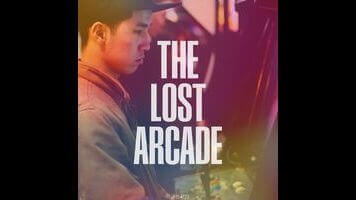The Lost Arcade remembers the glory days of a coin-op mecca

Every subculture now gets a documentary feature of its own, it seems. The Lost Arcade isn’t about video arcades generally, but about one specific arcade: Chinatown Fair in Manhattan. And it isn’t even really about Chinatown Fair so much as it’s about a particular community of people who used to frequent the place, almost all of whom were (and still are) primarily into fighting games: the Street Fighter series, the Marvel Vs. Capcom series, etc. What interests director Kurt Vincent and producer-writer Irene Chin is the way that CF (as everyone calls it) gradually became a second home for a group of kids who felt like outcasts, in part because every other video arcade in Manhattan closed not long after the ’80s boom died out. At bottom, this is the story of freaks and geeks everywhere: a quest for the like-minded, rooted in obsessive engagement with a tiny sliver of pop culture. The Lost Arcade doesn’t offer a particularly fresh angle on the subject, but it may please those nostalgic for the days when people stood in front of huge cabinets, paying a quarter a shot to do their punching by avatar.
Chinatown Fair has been around for a long time—it opened in 1944, originally as a penny arcade and museum. The Lost Arcade zips through this backstory at top speed and subsequently does a poor job of clarifying arcade history in general; we’re told that all of the other arcades in Manhattan went under because people switched to home consoles following the advent of Nintendo, but that doesn’t explain where the Street Fighter and Dance Dance Revolution machines that CF subsequently hosted came from. (Manhattan real estate presents unique issues that were likely a factor, but the film never addresses this.) Vincent fudges other aspects, too. At one point, he shows what’s ostensibly a classified ad for Chinatown Fair from decades ago (“Video Arcade For Sale”), but all of the phone numbers visible in the ad start with 555. Not a federal offense, admittedly, but documentary fabrications like that can erode a viewer’s trust, even when they’re clearly intended to avoid legal hassles. (Just redact the numbers; don’t fake the ad.)
Thankfully, the interview subjects come across as indelibly real. The Lost Arcade devotes much of its slender running time to two people: Akuma Hokura, a guy who found an escape from a troubled childhood (and then a fairly troubled adulthood) at Chinatown Fair, and Henry Cen, who started out sweeping the floor and eventually wound up running the joint. When longtime owner Sam Palmer finally decided to close up shop in 2011, Cen was so determined to maintain the community that had formed there that he opened a new business, Next Level, in Brooklyn, to which everyone migrated. (He now runs games mostly on Xbox and PlayStation, though, noting that nostalgia for cabinets is just not profitable.) Chinatown Fair has since re-opened under new management, which has rebranded it as a family-friendly establishment; the movie mostly views this as a betrayal, though Vincent does include an interview with a young woman who points out that the new CF is a whole lot more welcoming of women. All three locations—the old Chinatown Fair, Next Level, and the new Chinatown Fair Family Fun Center—have one thing in common, though: What they offer, cinematically, is mostly an opportunity to watch other people playing video games. If close-ups of fingers manically tapping buttons thrills you, this is your movie.